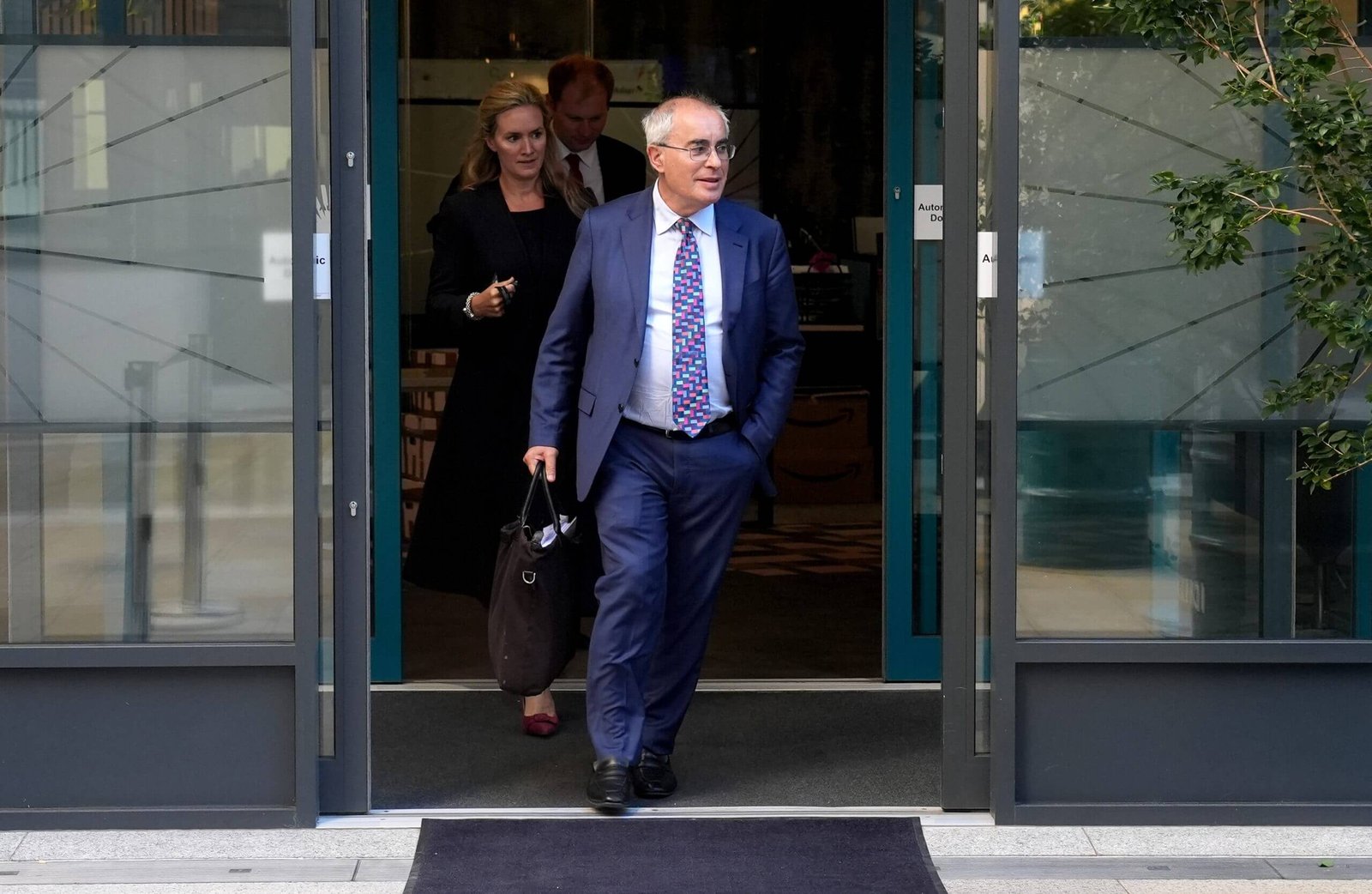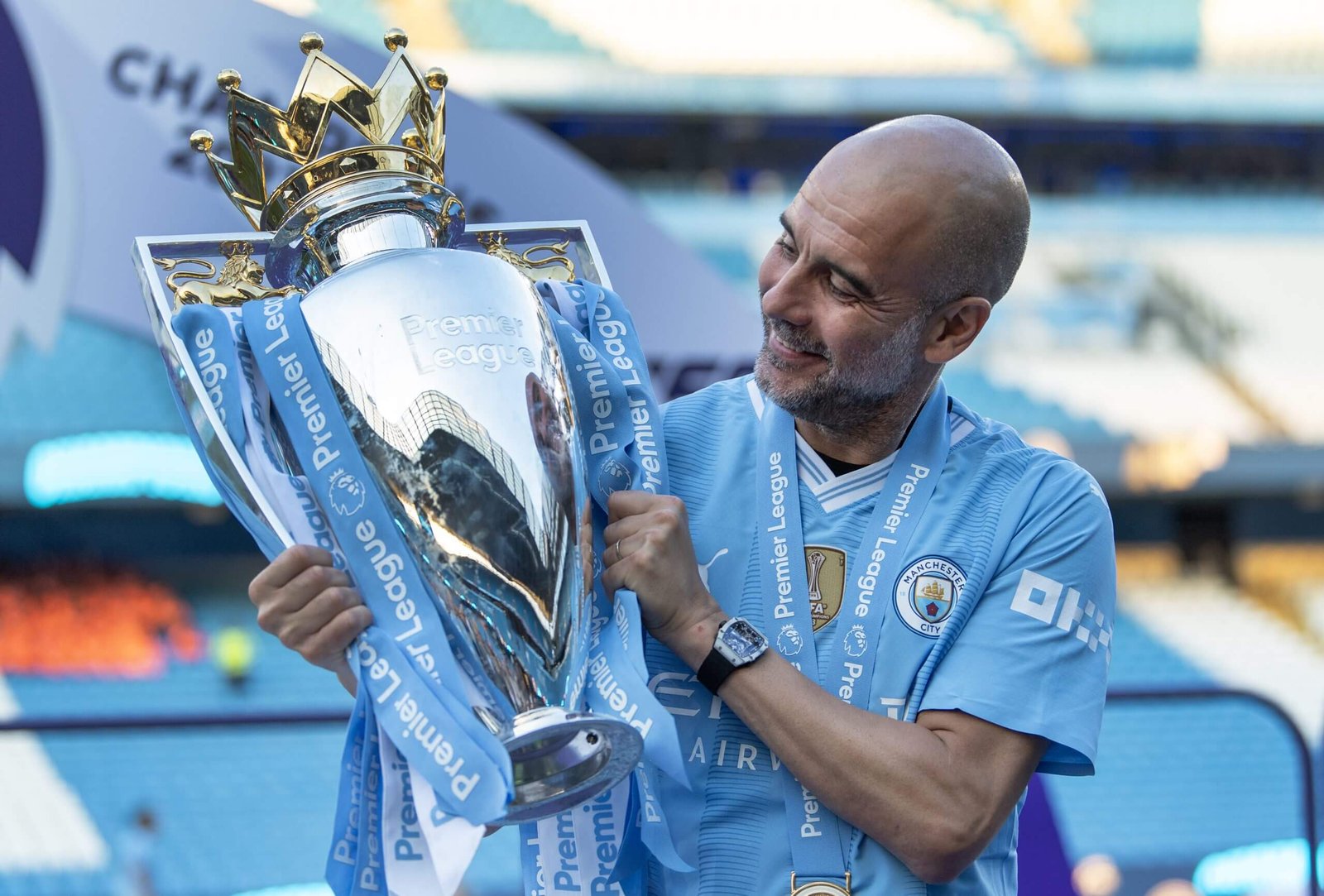Manchester City and the Premier League will resume their legal battle on Friday — but, well, has it ever really stopped?
The two sides are still quietly thrashing out the merits of each one of 115 charges in the privacy of a central London arbitration centre. But across the city in the genteel surroundings of a Marylebone hotel, this animosity will soon turn public.
All 20 Premier League clubs will have representation at Friday’s shareholders’ meeting, with clubs due to vote on proposals to alter Associated Party Transaction (APT) rules. This follows arbitration between the two sides over the summer in which an independent panel found aspects of the Premier League’s rules unlawful.
The Premier League’s position? Pull together the necessary alterations, wave it through, move on. City’s view? These rules are fundamentally broken — any quick fix will be equally unlawful.
It’s a resolute force against an incandescent object. The other 19 clubs will hear litigation threats, political posturing and likely a few raised voices before a vote which will further split the league, whichever way it goes.
How did we get here?
If this was a television series, Friday’s show would still be the build-up as we race towards the explosive season finale — a final verdict on City’s 115 charges of breaching financial regulations. But this is a saga with more non-linear narratives than Westworld. It’s worth scrolling back through the City-Premier League IMDb pages before we get that far.
This particular subplot began back in June when City took the Premier League to independent arbitration, claiming their APT laws were unfair.
City felt the existing rules limited their ability to strike lucrative sponsorship deals because they place limits on relationships with partner companies with which they share common ownership.
Instead, these potential sponsorship deals with associated parties — APTs — had to conform with fair market value, with teams submitting their costings to the Premier League to see whether the deals complied.
City’s sponsorship network has historically been tied to figures who sit on the board of the City Football Group (CFG), meaning that APT rules affect them much more than other Premier League clubs.
These regulations were quickly tightened by other clubs after Newcastle’s takeover by Saudi Arabia’s Public Investment Fund, to the extent that City felt they had become anti-competitive and, therefore, unlawful.
City have won six of the last seven Premier League titles (Alex Livesey – Danehouse/Getty Images)
June’s arbitration hearing took two weeks, with Lord Pannick KC — also representing City in the 115 charges — leading their legal team once more. Eight other Premier League clubs provided supporting evidence in the proceedings with Arsenal, Manchester United, Liverpool, West Ham United, Brentford, Bournemouth, Fulham and Wolverhampton Wanderers all supporting the Premier League.
Eventually, four months later, the panel’s decision was made public in October and both sides claimed victory.
The full ins and outs of the decision is best consumed here, but, to summarise, the panel concluded that there were three areas where the Premier League’s rules were unlawful.
First, City successfully argued that they had been denied the opportunity to properly justify their proposed deals because they had not been allowed to view the data which the Premier League uses to benchmark them. The club will have the right to pursue damages.
Secondly, the panel found that the Premier League breached their own timeframe for dealing with City’s APT applications on three occasions — citing a lack of resources internally.
And finally, and most significantly, they ruled that shareholder loans should be included within APT regulations, which City argued had previously given their rivals a competitive advantage.
Shareholder loans are when clubs borrow money from their ownership, usually interest-free. According to City, and agreed by the panel, as a matter of principle, an interest-free loan cannot be fair market value — and, therefore, this is the sort of loophole which APT laws need to close.
The likes of Arsenal, Everton, and Brighton & Hove Albion — who all have over £250million ($316m) in interest-free loans — could all be affected in next year’s PSR calculations.
Despite a final page in the written decision which declared their regulations “unlawful” in seven bold clauses, the Premier League emerged claiming a significant victory. In a statement on their website, they pointed out that “the tribunal upheld the need for an APT system as a whole and rejected the majority of Manchester City’s challenges”.
This is somewhat true in the sense that City failed to successfully convince the panel that the wider intention and application of the rules were unlawful. It was found that City has not suffered bias and that the rules, as written, were “clearly defined, transparent and non-discriminatory”.

Lord Pannick KC has been representing City (Lucy North/PA Images via Getty Images)
So what is being proposed at tomorrow’s meeting?
It took all parties a long time to digest a lengthy decision and for other clubs to consider the potential implications for themselves. In the weeks since, however, legal letters have begun to fly between City and the Premier League over how the panel’s decisions should be resolved.
As it stands, the Premier League’s APT regulations are unlawful and cannot be enacted. The dispute, unsurprisingly, is over exactly how unlawful they are.
The Premier League, unable to currently process APT deals and potentially open to damages from clubs seeking associated party sponsorships in this interim, want to correct these regulations as quickly as possible.
They believe that a legal concept known as “the blue-pencil test” is applicable — this is the idea that you can just cross out problematic parts of a contract or rule, but leave the rest.
At the Premier League meeting, they will suggest a list of small amendments which specifically address the points found unlawful in the tribunal, while leaving the rest of the regulations in place.
The vote will be on whether to approve the Premier League’s suggestions. Judging by the tone of the interactions between City and the Premier League since the independent panel’s initial decision, this debate could turn fiery…
Why do Manchester City want the vote postponed?
City’s argument is that part of the regulations being found as anti-competitive means that the entire framework falls down.
As a result, they think the APT laws need systematic reform rather than quick corrections. They point to the fact that the independent panel have been instructed to rule on whether a “blue-pencil approach” is legal within 90 days. The Athletic has spoken to several lawyers who have debated the merits of that position, broadly landing on City’s side.
For City — and other clubs such as Aston Villa — this means that the Premier League should wait, as a minimum, for the tribunal’s decision to land before making a decision.
According to a letter seen by the BBC, City’s general counsel Simon Cliff has written to rival Premier League sides and the Football Association to argue that “clubs will be voting blind”.
“Common sense dictates that the Premier League should not rush into passing amendments — particularly ones which entail material legal risk — until (it) knows the outcome from the tribunal,” he adds. “It is important that a new regime is grounded in rules that are fair, considered and legal. Our strong desire is to avoid any future costly legal disputes on this issue and so it is critical that the Premier League gets it right this time round.”
It is understood that City have also sent a letter in which they have threatened to litigate the result of any vote reached at Friday’s meeting, pointing out that the voting clubs ultimately pay the Premier League’s legal bills.
For its part, the Premier League have replied with their own legal round-robin. In a letter to Manchester City, seen by The Athletic, the governing body’s lawyer argues: “Neither the award nor the possibility of a future ruling from the tribunal on the effect of the award on existing APT rules has any bearing on the league’s ability to consult with clubs in order to reach agreements on rule amendments. Consulting with clubs on such matters is a core function of the league’s role as a regulator.
“Each of the numerous aspects of MCFC’s challenge to legality was considered by the tribunal, leading the tribunal to conclude that the only ways in which the APT rules were unlawful are those matters now subject to the consultation process.
“In circumstances where the tribunal has found limited aspects of the APT rules to be distortive of competition, the need for efficient and prompt action to deliver good governance is self-evident.”
Why are Aston Villa backing City?
On Wednesday evening, Aston Villa owner Nassef Sawiris became the first Premier League club owner to publicly state his position.
“In our view, a vote in 90 days on amended terms taking into consideration the tribunal’s findings will have a significantly greater chance of securing the unanimous support of all 20 Premier League clubs,” Sawiris told The Telegraph.
“Crucially, a unanimous vote will present a fresh start for an embattled Premier League that began with the failed attempt to launch a Super League in 2021. With the imminent arrival of the Government’s Independent Football Regulator, it is more important than ever that the Premier League can present itself to the regulator with a united front. In our view, this will be far more easily achieved if the APT vote is held in February and supported unanimously by all clubs.”

Villa owner Nassef Sawiris (Zac Goodwin/PA Images via Getty Images)
It is understood that Villa’s position is motivated by a desire to avoid wasted time in legal fights, instead feeling that, with limited transactions likely to emerge while awaiting the tribunal’s decision, it is better to wait for total clarity.
Their position is not confirmation that they will vote for or against the new APT rules — merely that the decision should be delayed until the new proposals have been vetted.
These sentiments were expressed in a letter from Villa to the Premier League. But, with the governing body intent on a quick solution, a vote will take place.
Is the vote likely to pass?
Club officials at multiple Premier League sides expect the vote to be close. Villa’s support of City’s position is revealing — the club voted both with and against City on various issues — and points to the divisions which may exist within the league.
More broadly, the old divides which used to govern Premier League have dissipated, making results difficult to predict. Whereas it was once the “big six” versus the rest, issues such as multi-club models and state ownership have created unlikely (and uneasy) alliances. Often, they are asked to choose between competing interests.
As one simple example, a team who have taken out a large shareholder loan, like Arsenal, might naturally not want to vote to enshrine a law which affects their PSR cap — but otherwise face empowering City in their wider bid to rip up the Premier League’s financial rulebook.
Any rule change needs two-thirds approval so, if the Premier League can find 14 votes, their amendment would pass. Any fewer and City have struck an embarrassing blow.
Generally, the Premier League only offers votes on which it is sure it can win.
However, they notably lost a vote this time last year, on whether there should be a temporary ban on related-party loans — attracting the backing of only 12 sides.
On that occasion, one of the principal motivations of the eight dissenting clubs was that rule changes should not be made mid-season, when they did not have the full knowledge of their future effects. It is likely that a similar argument will be made by City’s representatives on Friday.

City manager Pep Guardiola celebrates winning the Premier League last season (Visionhaus/Getty Images)
What happens if it doesn’t pass?
The Premier League will have to wait for the decision of the tribunal before making further suggestions. It may well mean they have to reform the laws further than they would ideally like, which potentially has irritating implications.
They are arguing that the APT regime is still in place while they fix the rules — but City say this is wrong, and APTs should only be assessed after they are flagged in their annual accounts, as in historic iterations.
This is effectively a loosening of the rules. But if the Premier League block clubs doing this, and are subsequently shown to have done this in breach of competition law, they could face damages claims from clubs who are fond of associated party sponsorships, such as City and Newcastle United.
And what happens if it does?
It will instantly enter the Premier League’s regulatory handbook meaning that APTs are legal once again.
Everyone shakes hands, smiles, and goes off to make fair-market-value deals with companies linked to their ownership. The winter sun shines, a robin lands on a nearby bough. Clubs with shareholder loans will have to adapt the structure of those details or cut back in the upcoming PSR deals.
City’s reaction is the key domino. Expect legal aggression.
Their lawyers have indicated they are prepared to take further action on this issue and, if the tribunal’s decision outlaws a “blue-pencil approach” in the coming months, this vote will have been for naught. The rules, even once amended, would still be unlawful. Buckle in and get counting those votes.
Additional reporting: David Ornstein
(Top photo: Alex Livesey – Danehouse/Getty Images)
Read the full article here


